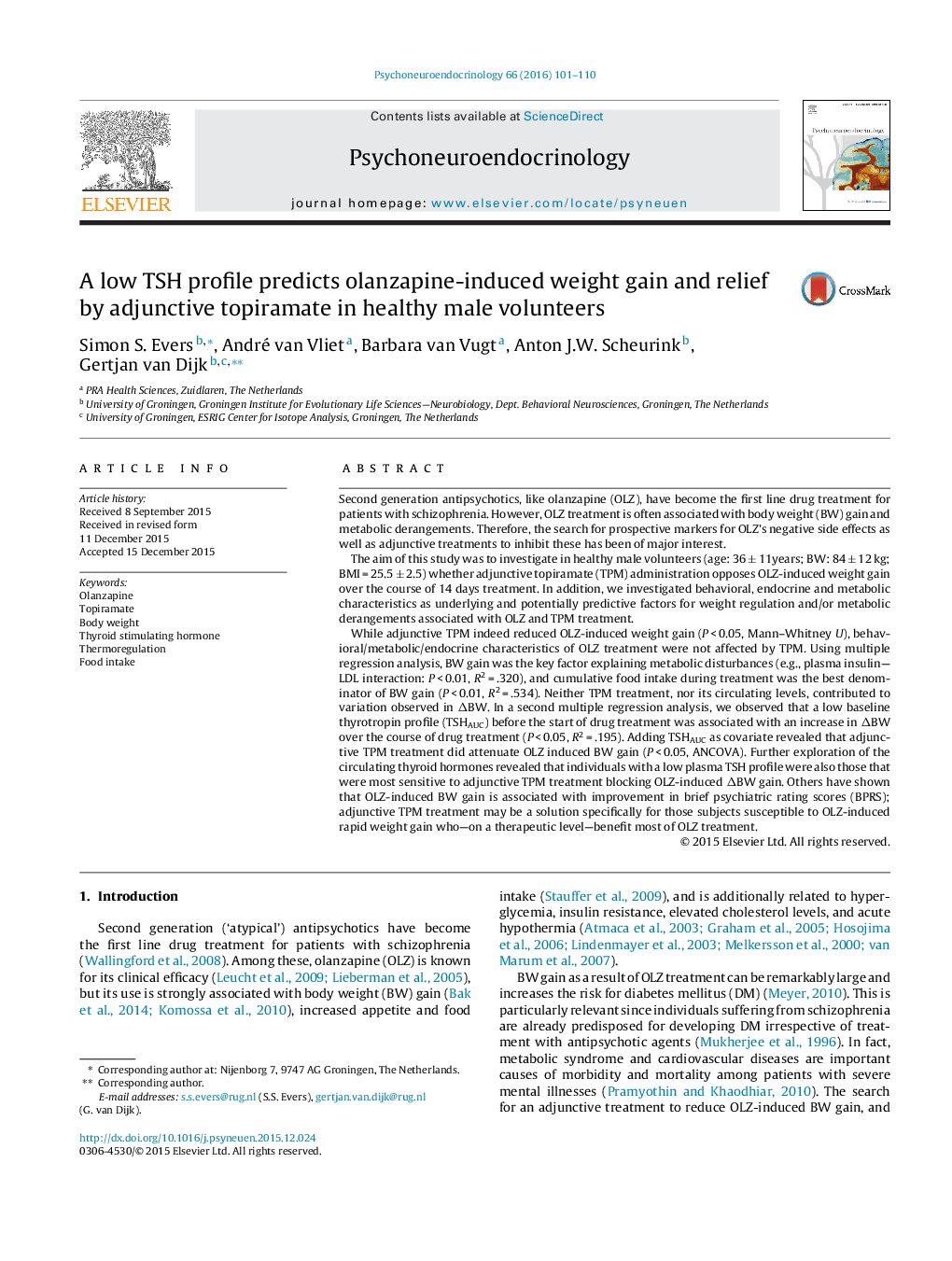| کد مقاله | کد نشریه | سال انتشار | مقاله انگلیسی | نسخه تمام متن |
|---|---|---|---|---|
| 336320 | 547112 | 2016 | 10 صفحه PDF | دانلود رایگان |
• Olanzapine induces weight gain in healthy male volunteers.
• Topiramate reduces olanzapine induced weight gain.
• Low basal thyrotropin levels are predictive for olanzapine-induced weight gain.
• Topiramate is specifically effective in reducing weight gain in those individuals with a low baseline TSH profile.
Second generation antipsychotics, like olanzapine (OLZ), have become the first line drug treatment for patients with schizophrenia. However, OLZ treatment is often associated with body weight (BW) gain and metabolic derangements. Therefore, the search for prospective markers for OLZ's negative side effects as well as adjunctive treatments to inhibit these has been of major interest.The aim of this study was to investigate in healthy male volunteers (age: 36 ± 11years; BW: 84 ± 12 kg; BMI = 25.5 ± 2.5) whether adjunctive topiramate (TPM) administration opposes OLZ-induced weight gain over the course of 14 days treatment. In addition, we investigated behavioral, endocrine and metabolic characteristics as underlying and potentially predictive factors for weight regulation and/or metabolic derangements associated with OLZ and TPM treatment.While adjunctive TPM indeed reduced OLZ-induced weight gain (P < 0.05, Mann–Whitney U), behavioral/metabolic/endocrine characteristics of OLZ treatment were not affected by TPM. Using multiple regression analysis, BW gain was the key factor explaining metabolic disturbances (e.g., plasma insulin— LDL interaction: P < 0.01, R2 = .320), and cumulative food intake during treatment was the best denominator of BW gain (P < 0.01, R2 = .534). Neither TPM treatment, nor its circulating levels, contributed to variation observed in ΔBW. In a second multiple regression analysis, we observed that a low baseline thyrotropin profile (TSHAUC) before the start of drug treatment was associated with an increase in ΔBW over the course of drug treatment (P < 0.05, R2 = .195). Adding TSHAUC as covariate revealed that adjunctive TPM treatment did attenuate OLZ induced BW gain (P < 0.05, ANCOVA). Further exploration of the circulating thyroid hormones revealed that individuals with a low plasma TSH profile were also those that were most sensitive to adjunctive TPM treatment blocking OLZ-induced ΔBW gain. Others have shown that OLZ-induced BW gain is associated with improvement in brief psychiatric rating scores (BPRS); adjunctive TPM treatment may be a solution specifically for those subjects susceptible to OLZ-induced rapid weight gain who—on a therapeutic level—benefit most of OLZ treatment.
Journal: Psychoneuroendocrinology - Volume 66, April 2016, Pages 101–110
